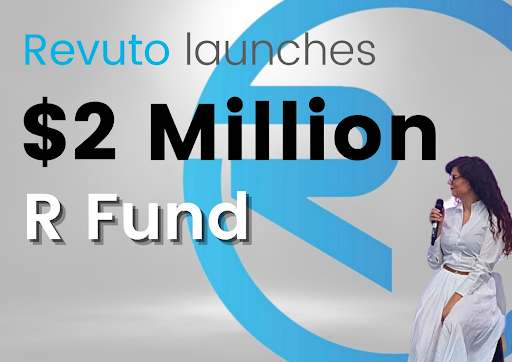While still at a nascent stage, blockchain and distributed ledger technology (DLT) have emerged as a potent catalyst for disrupting antiquated business models. Over the years, innovative blockchain solutions have barreled their way into the mainstream market, positively impacting several prominent sectors by bridging DLT with real-world use cases.
Blockchain-based solutions have proven themselves as transformative for many global industries, including IT, real-estate, web technology, finance, marketing, IoT, and many more. As the underlying technology continues to evolve, entrepreneurs worldwide have come to realize the intrinsic value of blockchain’s distributed nature, peer-to-peer networking, security, and transparency. By incorporating blockchain, businesses can cultivate more transparent and open environments and automate many existing manual processes.
Several innovative and promising blockchain projects have successfully merged traditional business models with open-source and permissionless technology throughout the last few years, laying the foundation for a more inclusive world where everyone is afforded access.
That said, here are three next-generation projects that have established themselves as prominent contributors in helping solve real-world challenges using blockchain technology.
The Airbnb Of Decentralized Databases
The Bluzelle project, popularly known as the ‘Airbnb of Databases,’ aims to set a new benchmark for the decentralized internet by a decentralized database built on blockchain technology to collect and secure data using distributed ledger technology.
With Bluzelle, anyone can store structured data and use it for dApps via smart contracts without any censorship while ensuring maximum scalability. Built with Cosmos SDK and based on Tendermint’s Byzantine Fault Tolerant technology, Bluzelle has emerged as a potential powerhouse that can play a significant role in shaping the future of the decentralized web.
Due to the decentralized nature of Bluzelle, no central authorities oversee and manage its operations. Instead, the Bluzelle system relies on network participants to rent out their redundant storage with other users, allowing them to earn compensation in BLZ tokens, the native tokens of the Bluzelle network.
One of the most significant aspects of this innovative project is the absence of competition with other existing decentralized storage solutions. Instead, Bluzelle offers an ecosystem that complements existing programs like Golem, Sia, iExec, and Substratum. Accordingly, Bluzelle’s objective is not necessarily to remove legacy databases from the market but instead set a new standard for blockchain technology.
Raising The Bar For Data Sovereignty To New Heights
Developed by BOTLabs, a German blockchain company, the KILT Protocol is one of the first blockchain projects built on the Substrate blockchain framework. The team behind KILT brings forth a novel solution that addresses data privacy while giving users better control over their data.
The KILT Protocol claims itself as an open-source blockchain protocol for issuing self-sovereign verifiable, revocable, and anonymous claims-based credentials in Web3. With this technology, users can prove their identities online while bypassing the need for companies to collect passwords and user information.
As of now, users need to provide a heap of personal information to sign-up for online services, products, apps, and more. The existing market relies on OAuth2, which big brands like Google, Apple, Facebook, and Amazon employ to centralize user data. With personal data stored across these brands, the user loses control. Moreover, centralized data silos are prone to cyberattacks, leading to situations like identity theft and misuse.
KILT Protocol establishes a permissionless standard for managing credentials in a decentralized format. This feat is accomplished by facilitating a universal model that allows individuals, objects, and organizations to claim random attributes validated by trusted entities before claims are stored as self-sovereign credentials (certificates).
The platform already supports several real-world use cases, including its recent DeFi project Polkadex, DNA testing project with Degenics, and the national digital registry for distributed energy resources for Germany’s Federal Energy Agency (DENA).
Bringing Smart Contracts Into The Outside World
PARSIQ, the blockchain monitoring and workflow automation solution that connects on-chain and off-chain applications. It offers various blockchain monitoring and analytics tools across industries while supporting both B2B and B2C models.
The platform extends its use case not only to the blockchain world but also to the off-chain universe. Parsiq’s applications do off-chain jobs such as tracking transactions for compliance purposes, financial accounting, and crawling for insights from competing blockchains, among many other roles.
Smart Triggers, which rank high among PARSIQ’s essential features, are effectively smart-contracts deployed into the PARSIQ environment. These triggers play a critical role in extending the functionality of on-chain smart contracts into the outside world, thus supporting a range of real-world use cases.
External blockchains typically trigger a Smart Trigger. However, it can also allow for the creative combination of the classified events, which can be observed by replaying transactions through the PARSIQ’s instrumented virtual machine. PARSIQ recently partnered with Autonio Foundation to enable Autonio’s NIOX trading suite to make informed decisions in specific areas using Smart Triggers technology.
With this feature, NIOX can seamlessly connect on-chain and off-chain data to create alert systems for complex trading strategies based on specific triggers. Several top projects from both Web3 and Web2 currently rely on PARSIQ’s middleware, infrastructure, and data processing solutions to offer blockchain-based real-world solutions.
Disclaimer: This article is provided for informational purposes only. It is not offered or intended to be used as legal, tax, investment, financial, or other advice.
Credit: Source link























